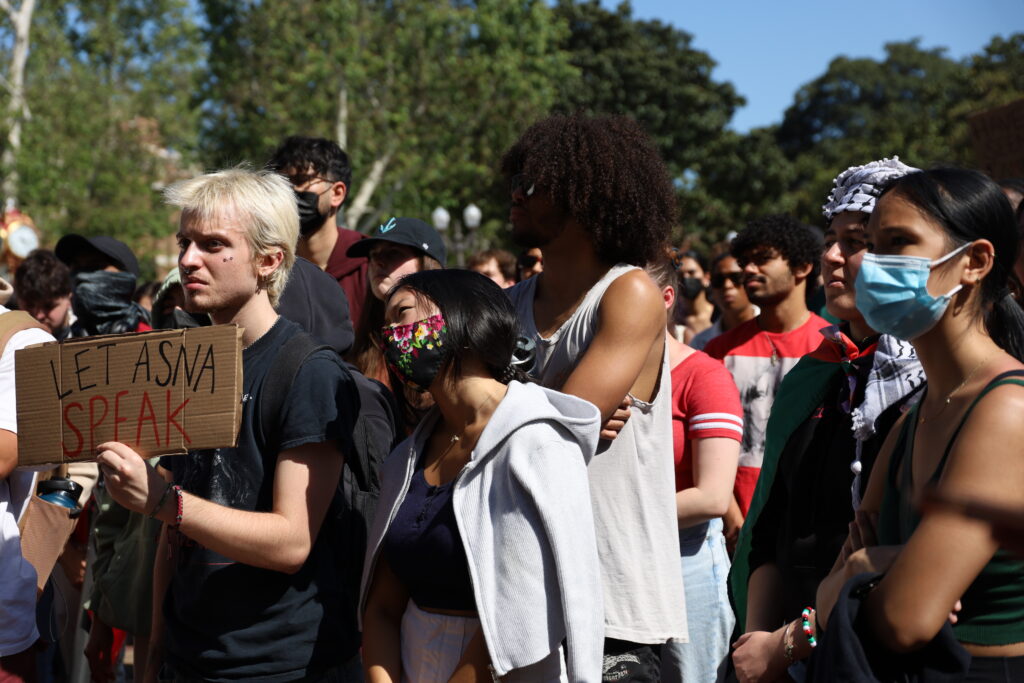
A selection of books featuring LGBTQ characters that are part of the Supreme Court case.
Credit: AP Photo/Pablo Martinez Monsivais, File
California school leaders will face a new reality when students return next month following the U.S. Supreme Court’s decision Friday that parents have a constitutional right to remove their children from classes that conflict with their religious beliefs.
The court’s 6-3 decision in Mahmoud v. Taylor, written by Justice Samuel Alito, gives parents wide latitude in what they can claim conflicts with their religion. It goes far beyond books about gay marriage and gender identity at the heart of the case, which grew out of a dispute involving a Maryland school district, said Edwin Chemerinsky, the dean of UC Berkeley’s Law School, in an interview Monday.
Conservative parental activists vow to move quickly to take advantage of the decision.
In a statement, Jonathan Keller, the president of the California Family Council, called the majority decision “a direct rebuke to the kind of LGBTQ-centered curriculum that has flooded California public schools in recent years. This is our Red Sea moment. God just parted the legal waters. Now it’s up to parents to walk through.”
Districts will have to scramble to design curriculum notification and opt-out protocols, said Troy Flint, a spokesperson for the California School Boards Association.
“This could be a Pandora’s box,” he said. “Right now, there’s a lot of urgency in the membership, with school really only a little more than a month away.”
The high court’s ruling gave districts no leeway if parents interpreted that classroom content conflicted with their religious beliefs.
“A government burdens the religious exercise of parents when it requires them to submit their children to instruction that poses ‘a very real threat of undermining’ the religious beliefs and practices that the parents wish to instill,” Alito wrote.
Given questions that the court’s conservatives asked during oral arguments in April, Chemerinsky said there was little doubt about the outcome of the case, which involved the Montgomery County Public Schools in Rockville, Maryland, a suburb near Washington, D.C.
What is surprising, he said, is that the court’s decision “didn’t have any limiting principle.”
“Any time a parent has a religious objection to a child being exposed to material, the parent has to have notice and the opportunity to opt out,” Chemerinsky said. He said he thought the court might have found some way to limit the ruling’s impact, “because otherwise it’s going to lead to chaos.”
A parent, he said, could object to the teaching of Darwin’s theory of evolution in biology class on religious grounds, citing the Book of Genesis. Or they may opt their child out of an English class if a teacher assigns a book with a witch in it, like “The Wizard of Oz” or “Harry Potter.”
“Keep in mind how incredibly diverse our country is on the basis of religion,” Chemerinsky said. “There’s a church of Satan.”
The decision made clear that the court is not limiting what may be taught. But some advocates for LGBTQ+ students are predicting that the result will be a retreat from controversial discussions and books.
“The ruling sets a dangerous precedent that leads to a slippery slope of what curriculum or instructional materials can be opted out of and calls into question what can be introduced to our classrooms in the first place,” Tony Hoang, executive director of the civil rights group Equality California, said in a statement.
Decisions will be made under pressure, Flint said.
“It’s challenging to make this change on a short turnaround during the summer,” Flint said. “But we’re going to do our best to provide information to members and support them. I expect this will bleed over into at least the first part of the school year, if not longer.”
Changes would likely include “ensuring parents get some kind of advanced notice about curriculum components that touch on controversial topics, gender identity and sexuality being a couple of those,” he said. “There’s not a lot of time.”
Sonja Shaw, president of the Chino Valley Unified School District’s board and a candidate in next year’s race for state superintendent of public instruction, told EdSource that the best way to prevent the havoc of parents opting their children out of classes “is to stop teaching gender, ideology and all that other confusion. Boys are boys. Girls are girls.”
Chino Valley has lost in court on policies Shaw pushed to require parental notification when a student identifies as a different gender. She has claimed that state leaders support policies that “pervert children.”
State Attorney General Rob Bonta, who brought lawsuits against Chino Valley and who filed a friend of the court brief siding with the Montgomery County School District before the U.S. Supreme Court, said in a statement that California must “affirm and protect the rights of all students, including our most vulnerable individuals. By ensuring our curriculum reflects the full diversity of our student population, we foster an environment where every student feels seen, supported, and empowered to succeed.”
“In California, we will continue to remain a beacon of inclusivity, diversity, and belonging,” he said.
The office of state schools Superintendent Tony Thurmond did not respond to a request for comment.
Anne Hubbard, superintendent of the three-school, 900-student Hope Elementary School District in Santa Barbara County, said she has a tentative plan for how opt-outs could work while she awaits legal guidance on the issue.
Parents will fill out an opt-out sheet at the beginning of the year if they prefer their child to participate in an alternative activity instead of being in a class where LGBTQ+ issues are being discussed. They’ll go to another classroom, an office or the library, she said.
But she is not going to stop teachers from using books that involve LGBTQ+ people. “I’m going to be telling the teachers they can read whatever books they want,” she said. “They can have what they want in their classroom libraries.”
David Goldberg, president of the California Teachers Association, said that “teachers are going to continue to really focus on making sure that our curriculum makes every student feel safe and nurtured in our schools.”
“That’s how kids learn. You can’t learn when you feel like you’re not in a safe place,” he said. “Continuing to push people to the margins — that’s not what we do in a democracy or in a pluralistic society that is committed to having every student feel safe and welcomed.”
However, there is also fear that the ruling could lead to schools banning books or changing curriculum, he added.
Shaw said she intends to campaign on the issue as next year’s election inches closer and will push back on advocates and teachers who continue to use lessons that include LGBTQ+ materials and literature.









